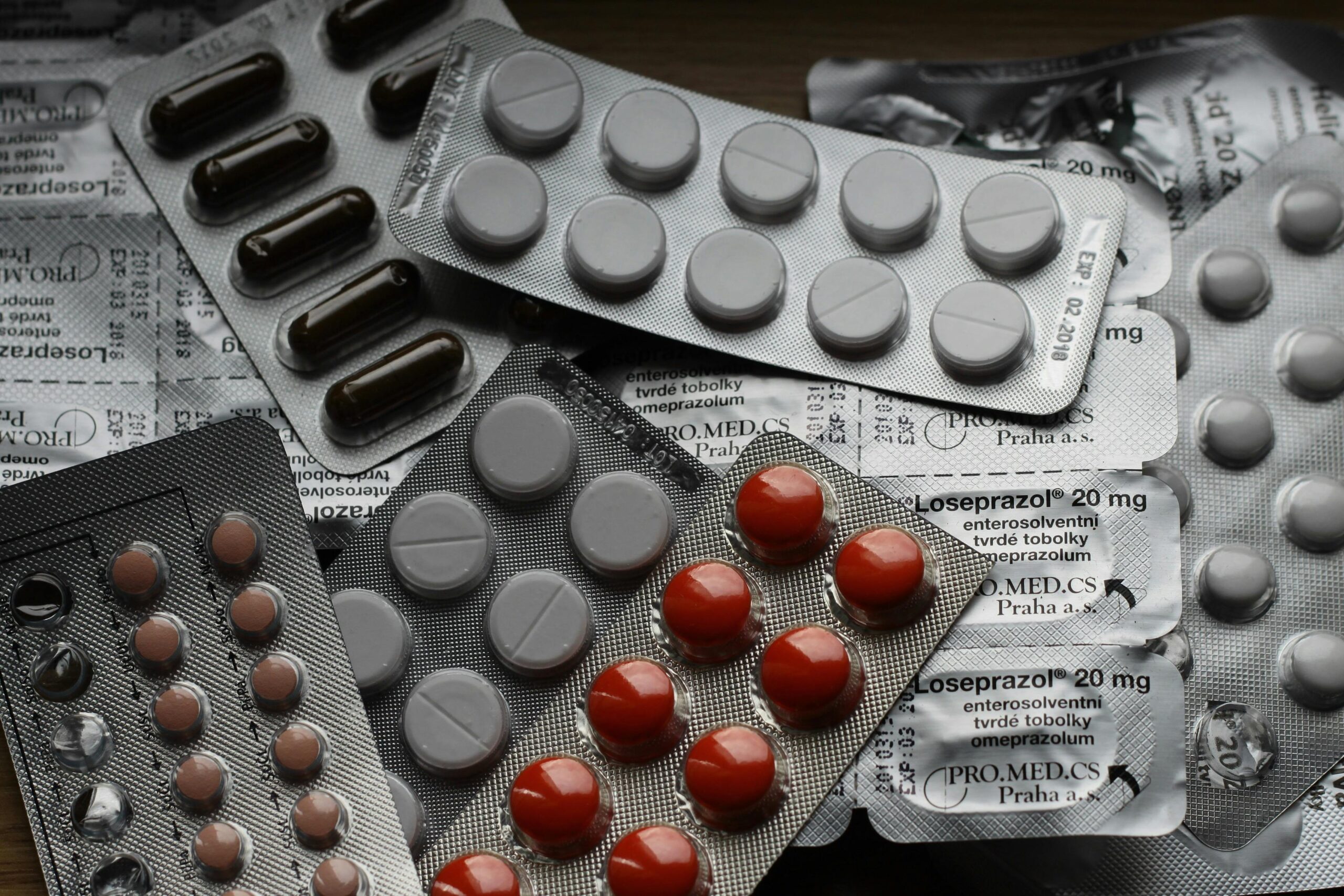Have you heard the term “feening” used for anything recently? If you have ever been in the vicinity of the addiction recovery community or even watched a gritty drama on TV, you most likely know this term. What precisely does the word “feening” mean? Is it only a sort of colloquial language, or is there more involved here? Now that we have that out of the way, let’s explore the domain of strong cravings, the yearning for that elusive high, and a research on what it truly means to be a drug addict.
Key Takeaways
- “Feen” (or “fiend”) describes a person with an intense craving or dependency on drugs, highlighting the obsessive, uncontrollable nature of addiction.
- Using terms like “feen” can perpetuate negative stereotypes, making it harder for people struggling with addiction to seek help. Compassionate language promotes understanding and reduces stigma.
- Effective addiction treatment includes therapy, support groups, and holistic care, emphasizing that recovery is achievable with the right support and resources.
Table of Contents
What Does It Mean to be “Feening”?
When we discuss a drug addiction, we are not only referring to a general lack of willpower or a lack of will at all. The interaction of brain chemistry is a multifarious and complicated phenomena.
In some cases, individuals may engage in feigning drugs, where they fake or exaggerate health symptoms to obtain prescription medications, further complicating the issue of drug addiction.
The fetting experience goes beyond mere physical one. It is also emotionally charged. A person craving drugs may go through the following:
Providing support requires one to be able to identify when someone shows symptoms of drug craving. These are some warning indicators:
One first step toward recovery is realizing faltering. This emphasizes the need of treating addiction holistically—that is, considering its psychological as well as physiological features.

Understanding “Fiending” vs. “Feening”
The terms “fiending” and “feening” are often used in casual conversation, especially when discussing strong cravings. On the surface, these words appear interchangeable, but they have subtle distinctions rooted in slang evolution.
What Does “Fiending” Mean?
- Origin and Usage: “Fiending” comes from the word “fiend,” traditionally used to describe someone with an intense, often desperate craving, most notably for drugs. In contemporary slang, it has broadened to include any powerful desire or urge.
- Connotations: The term carries a negative connotation due to its association with addiction and compulsive behavior. It implies a sense of urgency or desperation.
What About “Feening”?
- Variation in Spelling: “Feening” is an altered spelling of “fiending,” popularized in certain dialects and cultural references.
- Cultural Influence: This variant gained traction through music and media, often used to express yearning or longing in more general contexts, not necessarily tied to substance desire.
Key Differences
- Contextual Nuances: While both terms describe a strong craving, “fiending” tends to imply a more severe, often harmful desire, whereas “feening” can be seen as a playful or less severe expression of want.
- Cultural Origins: “Feening” was popularized through hip-hop and R&B, where it often references a deep affection or need for a person or object, not limited to negative habits.
In summary, while “fiending” and “feening” can be used interchangeably in casual speech, understanding their nuanced differences can enrich conversation and clarify intent. Use “fiending” for more serious or negative cravings and “feening” for lighter, more playful desires.
Absolutely, experiencing a strong craving for drugs can lead to significant long-term health risks. Substance dependence often develops, making it challenging to function without the drug.
Mental and Physical Health Implications
Persistent drug cravings can severely impact mental health, potentially leading to anxiety, depression, or other psychological disorders. Physically, the body may deteriorate, with possible damage to vital organs, compromised immune function, and chronic illnesses becoming more likely.
Financial and Social Consequences
Financially, the cost of sustaining a drug habit can be overwhelming, leading to debt and economic instability. Relationships with family and friends can become strained or even break as trust diminishes and behaviors change.
Legal and Lifestyle Challenges
In addition, engaging in illegal activity to obtain drugs can result in legal issues, affecting one’s freedom and future opportunities. Overall, the quality of life decreases, putting individuals in a cycle that is difficult to break.
Understanding these risks can be a crucial step toward seeking help and making healthier lifestyle choices.
Role That the Brain Plays in Drug Cravings and Drug Seeking Behavior
In addition to being the result of brain activity, cravings are also the result of both physical and psychological dependence. Dopamine is a key component in this process.
According to The Reward Foundation, substance abuse has an effect on the reward center of the brain, which is also informally referred to as the nucleus accumbens (NAcc). It is the responsibility of the reward system to encourage behaviors that lead us toward pleasure and away from pain, as well as any other behavior that requires us to exert effort and energy over time. It does not have its foundation in logic, but rather in what is pleasant in the here and now. The reward system is the reason why skipping work for a day at the beach is more appealing than the responsible choice, or why eating healthily on a consistent basis is more difficult than indulging in unhealthy foods. Repeated drug use alters the brain’s chemistry, leading to a cyclical pattern of craving and withdrawal.
The midbrain is the location where dopamine is stored. Dopamine is a neurotransmitter that has an effect on learning, motivation, and pleasure. Whenever there is a sense of anticipation regarding a reward, it is released and then makes its way to the reward center. Following this, the brain will respond with a start or stop response, which will either prompt a person to take action or cause them to refrain from taking action.
Understanding the Long-Term Risks of Drug Cravings
Drug cravings, often referred to as “feening,” can lead to a multitude of long-term risks that extend far beyond the individual. Here’s an exploration of the potential repercussions:
Health Hazards
Sustained drug use can wreak havoc on the body, leading to significant health problems. Prolonged exposure to substances often results in organ damage, particularly impacting the liver, heart, and brain. Over time, cognitive abilities can diminish, and users may develop a higher tolerance, necessitating increased dosages to achieve the desired effects. This escalation not only intensifies addiction but also heightens the risk of overdose.
Impact on Social and Emotional Well-being
The influence of drugs stretches into every facet of life, often leading to deteriorating relationships with family and friends. The emotional strain from isolation and persistent distress can be overwhelming. Furthermore, addiction often prioritizes drug use over responsibilities, jeopardizing employment and financial security.
Engagement in Risky Behaviors
In an attempt to satisfy cravings, individuals might resort to dangerous activities such as theft, violence, or illegal dealings. These actions pose significant risks to both the individual and the community. The compulsive need for drugs can cloud judgment, prompting impulsive and potentially harmful decisions.
Long-term Physical and Mental Health Effects
Chronic drug use can cause irreversible damage to essential organs and introduce various mental health challenges. Disorders such as depression and anxiety frequently occur alongside addiction, complicating recovery efforts and further impacting overall health.
Broader Consequences on Families and Communities
The consequences of addiction ripple outwards, greatly affecting families who endure emotional hardships as they witness loved ones in turmoil. Furthermore, communities bear the brunt as increased crime rates, strained healthcare systems, and economic burdens often follow in addiction’s wake.
Understanding these risks highlights the importance of addressing and mitigating the cravings associated with drug use to preserve both individual well-being and societal health.
The Role of Genetics in Drug Cravings
Yes, genetics can indeed influence feening, or intense drug cravings. If addiction runs in your family, you might have a heightened risk of experiencing these powerful urges. This genetic predisposition means that certain individuals may inherit a vulnerability, making them more susceptible to substance abuse and the intense cravings that accompany it.
Genetic factors interact with environmental influences, creating a complex landscape that affects how cravings develop and affect behavior. Studies suggest that specific genes may impact the brain’s reward system, altering its natural balance. This can lead to a heightened response to substances, driving stronger and more frequent cravings.
In essence, while genetics isn’t the sole cause of drug cravings, it can certainly set the stage. Being aware of your genetic background could help in taking preventative measures and seeking support to manage these cravings effectively.
Signs and Symptoms of Feening
The signs and symptoms of feening for drugs can vary from person to person, but common physical symptoms include:
- Nausea and vomiting
- Sweating
- Chills
- Muscle aches
- Headaches
- Fatigue
Psychological symptoms of feening include:
- Anxiety
- Depression
- Irritability
- Mood swings
- Insomnia
- Loss of interest in activities
Individuals experiencing feening may also exhibit behavioral changes, such as:
- Increased secrecy and dishonesty
- Manipulation of others to obtain drugs
- Neglect of responsibilities and relationships
- Continued use of drugs despite negative consequences
The Impact of Feening on Daily Life
Feening for drugs can have a significant impact on an individual’s daily life, affecting their relationships, work or school performance, and overall well-being. The constant craving for drugs can lead to:
- Strained relationships with family and friends
- Decreased productivity and performance at work or school
- Financial problems due to spending on drugs
- Increased risk of accidents, injuries, and illnesses
- Decreased self-esteem and confidence

Understanding Drug Seeking Behavior
Drug seeking behavior is a common symptom of addiction, where individuals go to great lengths to obtain drugs, often despite negative consequences. This behavior can be driven by physical and psychological symptoms, such as withdrawal symptoms and intense cravings. Understanding drug seeking behavior is crucial in developing effective addiction treatment plans. These plans address the underlying causes of addiction and provide individuals with the tools and support needed to overcome addiction. By recognizing the signs of drug seeking behavior, healthcare providers can tailor treatment approaches to better support individuals on their path to recovery.
How long do intense cravings for drugs really last?
Throughout their entire life, a person may continue to struggle with the desire to use drugs. As a result of the fact that cravings can occur at any time, many people find it beneficial to take part in fellowship programs such as Alcoholics Anonymous or Narcotics Anonymous. These programs allow individuals to collaborate with a sponsor (or a spiritual guide) and connect with peers who share similar beliefs and can assist them in managing cravings.
Substance abuse treatment often involves support groups like Alcoholics Anonymous and Narcotics Anonymous, which provide a community and peer support for managing cravings.
The most intense and frequent cravings occur right after the beginning of abstinence from the substance in question. As the brain adjusts to life without the substance, it makes an effort to fight against the process and instead turns to things that are familiar to it. As a person continues to abstain from harmful substances and cultivates healthy coping mechanisms, the frequency of cravings decreases. On the other hand, it is essential to seek support from outside sources, such as meetings of Alcoholics Anonymous or Narcotics Anonymous, outpatient treatment, therapy, or other options. Recognizing that cravings are a natural and expected part of the recovery process is also very important.
The Consequences of Giving in to Feening
Giving in to feening can have severe consequences, including:
Increased risk of overdose and death
Worsening of physical and mental health problems
Strained relationships and social isolation
Financial problems and legal issues
Decreased self-esteem and confidence
Increased risk of relapse and continued addiction
It is essential to seek professional help and support to overcome addiction and manage feening for drugs. Comprehensive addiction treatment programs, including pharmacological approaches, behavioral therapies, and support systems, can help individuals overcome addiction and achieve long-term recovery. By addressing both the physical and psychological aspects of addiction, these programs provide a holistic approach to recovery, ensuring that individuals have the best chance of maintaining sobriety and improving their overall quality of life.
How to Handle Your Cravings for Drugs and Overcome Addiction
Participating in constructive activities and establishing a support network are the two most effective and risk-free ways to deal with the phenomenon of drug cravings. It is essential to cultivate psychological tools and to have people you can contact in the event that cravings do, in fact, occur. When it comes to successfully managing cravings and recovering in general, support is absolutely essential.
Managing cravings is crucial to prevent repeated drug use and relapse, which can be challenging without proper support and coping mechanisms.
Managing cravings for drugs can be accomplished in a number of ways, including the following:
The process of identifying and learning to control triggers
Distracting yourself by doing things like reading a book, playing a video game, or going for a run;
Leaving a situation that is triggering
Establishing a support network consisting of family, friends, fellowship, and/or support groups; engaging in therapy; adopting a healthy lifestyle with regard to eating, sleeping, and physical activity;
Participating in therapy, such as cognitive behavioral therapy (CBT)
Practicing mindfulness through meditation, deep breathing, yoga, and/or spending time in nature
“Playing the tape forward” is yet another method that is frequently advocated for individuals participating in fellowship programs. This proverb encourages individuals to reflect on their previous actions and to consider the consequences that would result from their decision to consume alcohol or drugs in the long run. When it comes to people who struggle with addiction, their outcomes are never favorable.
FAQ
Q: How to manage cravings?
Although some people could be able to manage minor cravings on their own, generally speaking, especially for severe addictions, it is advised that they see professional help. By means of tools and techniques, therapists and medical professionals can enable effective management of cravings.
Q: How long do cravings last?
Individual variances, the substance, and the length of time fogging is used determine how long it lasts. While some people may experience strong cravings for weeks, others might find them for months.
Q: Do cravings only occur with illegal drugs?
No, it is not the case; not only can it occur with legal drugs like alcohol and prescription medications, but also with behaviors like gambling for example.

MD Mitchell Grant Cohen
Dr. Mitchell G. Cohen is a board-certified Internal Medicine specialist with over 34 years of experience in patient-centered healthcare. A graduate of Hahnemann University School of Medicine, Dr. Cohen completed his internship at the University Health Center of Pittsburgh, where he gained invaluable hands-on experience. He is also a certified addiction specialist, holding membership with the American Society of Addiction Medicine (ASAM).
Currently based in Nashua, NH, Dr. Cohen is affiliated with Saint Joseph Hospital, where he provides comprehensive care focusing on both internal medicine and addiction treatment. His expertise includes prevention, diagnosis, and management of adult diseases, as well as specialized care for individuals facing substance use disorders.
Dr. Cohen is committed to fostering open communication, ensuring his patients are fully informed and empowered to make confident decisions about their health and treatment options.







